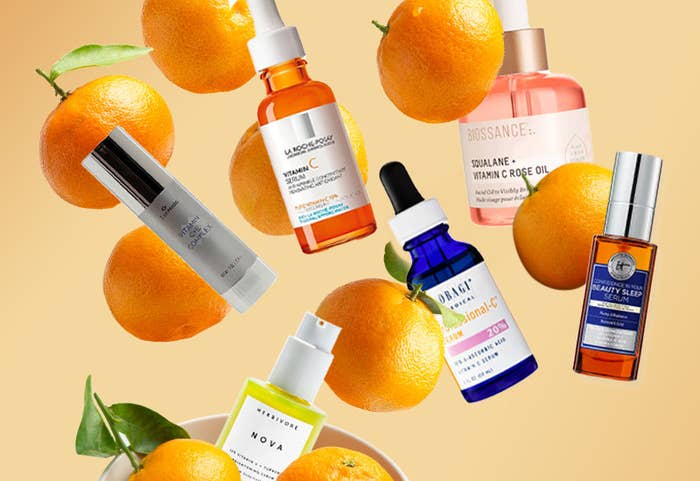
BuzzFeed may collect a share of sales or other compensation from the links on this page if you decide to shop from them. All products were independently selected by our editors, and the prices were accurate and items in stock at the time of publication.
As a child, my parents encouraged me to drink my orange juice to make sure I was getting enough vitamin C to keep my immune system strong. As an adult, TikTok skinfluencers are encouraging me to put it on my face.
They say vitamin C serum can help you achieve a glowing complexion, so I had to ask the experts how vitamin C might benefit my skin.
What are the benefits of vitamin C in skincare?
“Vitamin C is an incredible multitasker,” Dr. Geeta Yadav, a board-certified dermatologist and founder of Facet Dermatology, told BuzzFeed News via email. “It's a potent antioxidant, so it defends skin from free radical damage; it promotes healthier collagen for firmer, smoother skin with less noticeable pores; and it's a tyrosinase inhibitor, which means that it helps inhibit the formation of discoloration, leading to brighter, more even skin.”
Tyrosinase is an enzyme that contributes to melanin synthesis, a cause of dark spot formation, which is why inhibiting it will help address discoloration and uneven skin tone, said Dr. Julia Tzu, a founder and director of Wall Street Dermatology. And since vitamin C contributes to collagen synthesis, it can also play an important role in skin healing.
Board-certified dermatologist and founder of The Derm Institute Dr. Annie Chiu added that evidence-based studies have shown active forms of topical vitamin C do improve the appearance of fine lines, wrinkles, and dark spots.
Is topical vitamin C safe for your skin?
“Vitamin C is considered safe for all adults, and one of my most recommended skincare ingredients, even during pregnancy,” Chiu said via email. “If you have allergies, you should always patch test any skincare product. Easily flushed, rosacea-prone, or sensitive skin can sometimes be irritated by high percentages of very active forms of vitamin C like L-ascorbic acid.”
Tzu and Yadav agreed that higher concentrations of vitamin C have the potential to irritate very sensitive skin, and would also recommend patch-testing on a small area before full-face application in those cases.
It’s important to note that not all types of vitamin C used in skincare are the same. The most common is ascorbic acid, which is also the most potent. Another popular form is sodium ascorbyl phosphate, said Chiu. Also called encapsulated vitamin C, this may actually be better for those with sensitive skin given that it converts to ascorbic acid within the skin, making it weaker but also gentler.
What to look for in a vitamin C serum
Ascorbic acid is the pure and active form of vitamin C and also the most researched and demonstrated to offer results, Yadav said. Therefore, Chiu said, the most potent formulations on the market will contain ascorbic acid as the active ingredient in a strength of 10% to 20% with a pH lower than 3.5.
However, it’s also a more unstable form, so it does best in a base (like a serum) combined with other antioxidants like ferulic acid and vitamin E — additional antioxidants that help protect the activity and potency of vitamin C, keep it stable, and prevent it from oxidizing.
Other common and acceptable forms include ascorbyl methylsilanol pectinate, which has better shelf stability and skin penetration, and tetrahexyldecyl (or THD ascorbate), which is a stable fat-soluble ester of vitamin C with low potential for irritation, according to Chiu. You may see vitamin C in oils, moisturizers, or cleansers, though she said it will come in lower levels that make it less effective than a serum.
All three experts said that a serum is the best vehicle for applying vitamin C to the skin due to its potential for higher concentrations, stabilizing properties, and tolerability across skin types. Tzu believes that serums are also popular because they’re so versatile; you can wear them day or night, they’re lightweight, and they absorb easily without a greasy feel.
So without further ado, these are the best dermatologist-approved vitamin C serums.
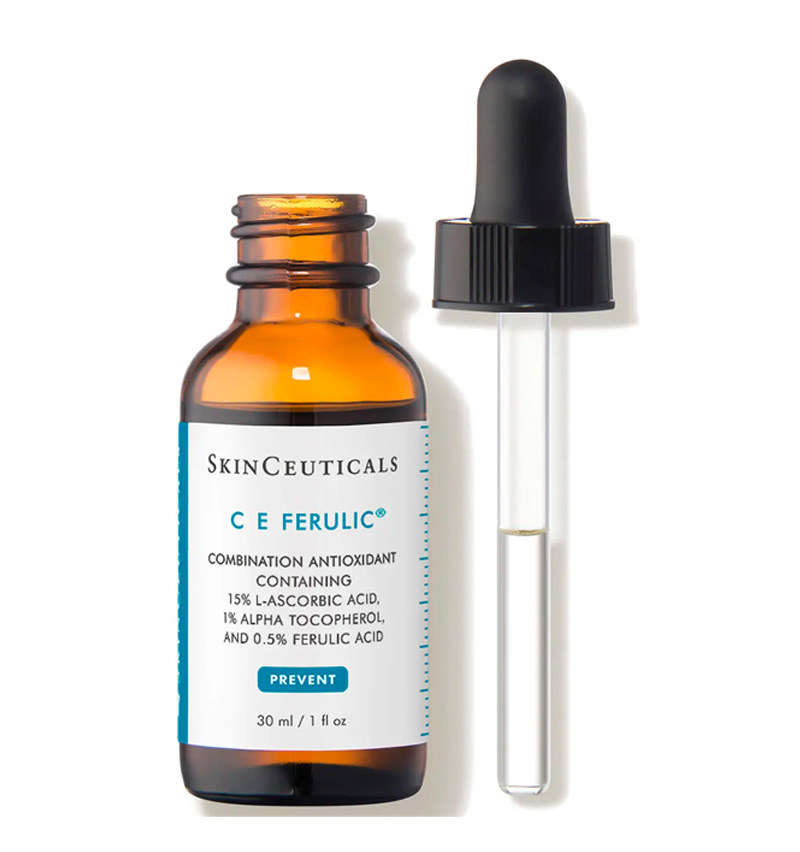
I can safely advise that if you’ve been considering buying this product and/or you’re able to afford it, buy it. Yadav is a huge fan, describing it as the be-all and end-all vitamin C serum that most dermatologists recommend: “It pairs a potent concentration of vitamin C (15%) with fellow antioxidants ferulic acid and vitamin E, for comprehensive protection against free radicals and holistic treatment of skin concerns.”
Chiu calls it the dermatologist’s gold standard. Tzu said that it’s triple the antioxidants (as opposed to vitamin C alone) in one serum. We know that influencer Lydia Keating swears by it, along with a plethora of other TikTokers I’ve seen. It’s expensive, yes, but with all of this high praise, it’s quite hard to resist.
Promising review: “This is the holy grail of vitamin c serums. I’ve been using this serum consistently with SPF for almost two years now and my skin looks better in my 30s [than] it did in my 20s.” —Lauren via Dermstore
You can buy SkinCeuticals C E Ferulic from Dermstore for around $182.
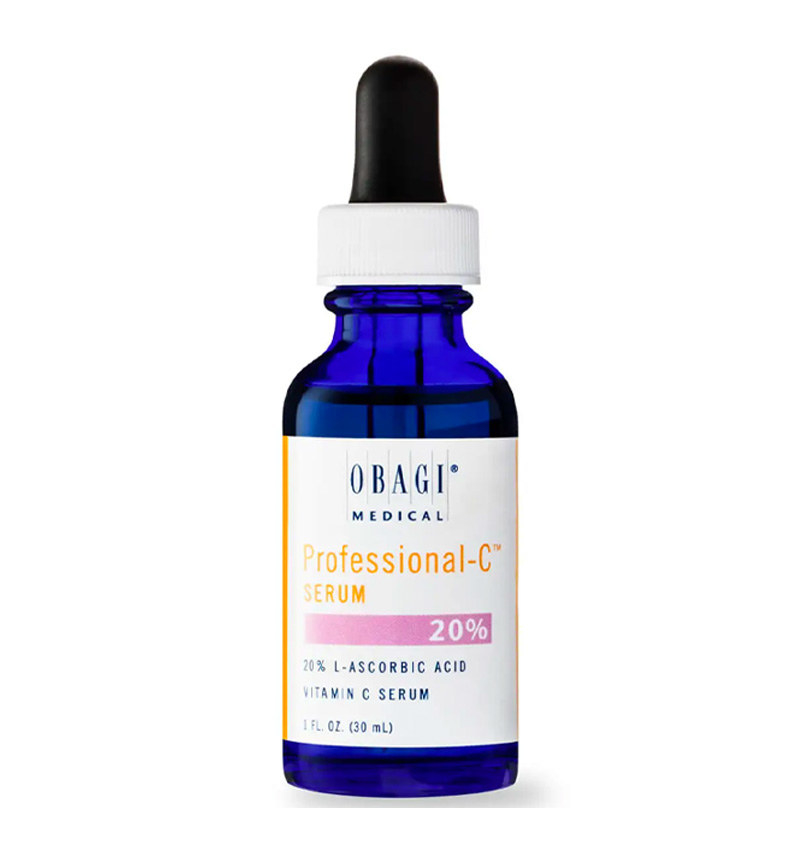
Chiu likes this serum due to the high concentration of L-ascorbic acid, making it one of the most potent formulas on the market. It’s designed to penetrate deep into the skin to provide effective antioxidant protection from UV damage, brighten away hyperpigmentation, and encourage collagen production. It also includes hyaluronic acid to keep skin hydrated.
Promising review: “Delighted with this product. Saw a change in texture of skin within 5 days as well as smoother foundation application.” —Dee via Dermstore
You can buy Obagi Medical Professional-C Serum 20% from Dermstore for around $139.
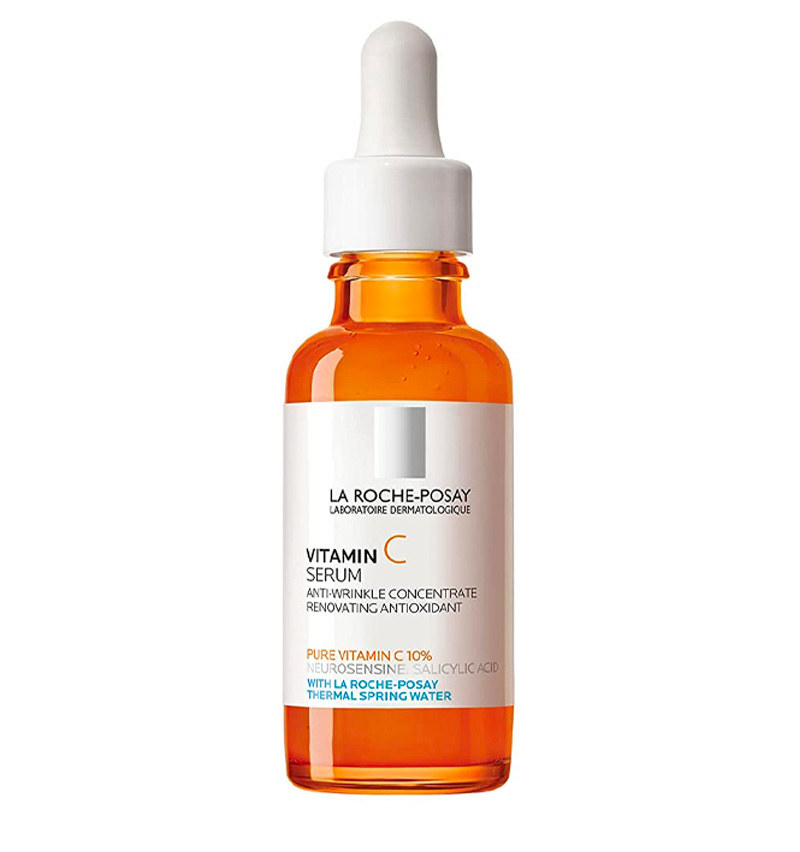
If you’re looking for a more affordable but still effective vitamin C serum, Chiu recommends this one from La Roche-Posay with 10% pure vitamin C. She says that it’s especially good for breakout-prone skin since it’s formulated with salicylic acid. It contains hyaluronic acid as well to prevent dryness while boosting radiance and improving skin texture.
Promising review: “La Roche-Posay products are quality, so I knew it would be great, and I was right. Some Vitamin C serums smell bad, but not this one. It has a nice dropper to distribute little drops in different areas, and it absorbs wonderfully.” —Diane Pogreba via Amazon
You can buy La Roche-Posay Pure Vitamin C Face Serum from Amazon for around $45.
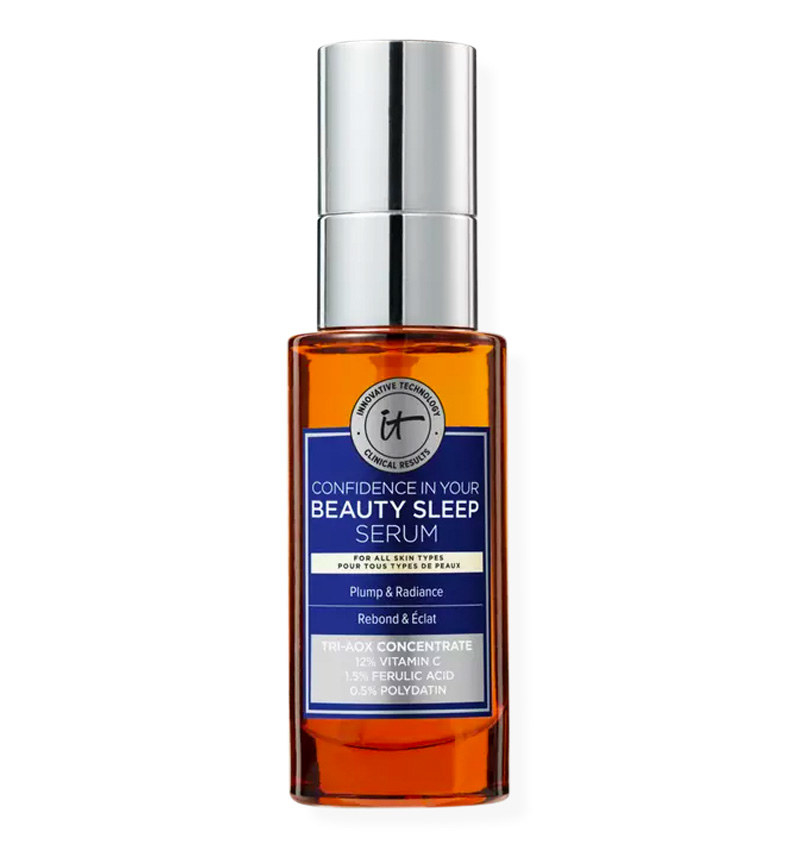
Tzu admits that she’s biased since she helped develop it, but she loves this IT Cosmetics sleep serum with 12% ascorbic acid and 1.5% ferulic acid. It’s designed to be used at night and fully absorb while you sleep so that you wake up with more radiant, glowing skin.
Promising review: “Love this product! I noticed more smoothness, softness, and radiance after the very first use!” —H Wright via Ulta
You can buy IT Cosmetics Confidence in Your Beauty Sleep Serum from Ulta for around $62.
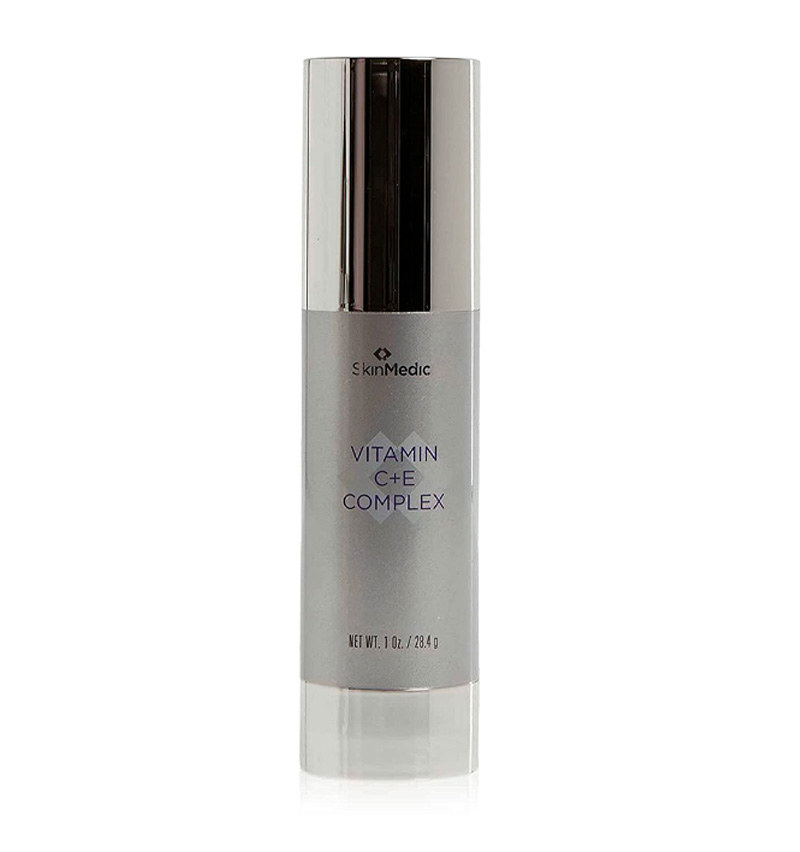
Chiu recommended this treatment for those who want the benefits of vitamin C in a light yet moisturizing base. It contains ascorbic acid and THD, along with vitamin E, to improve skin tone and texture and enhance brightness. Both vitamins C and E are gradually released throughout the day to continuously protect skin and stimulate collagen production.
Promising review: “Works as expected. Very smooth and lightweight on the skin. A little goes a long way. Great brightening effect from usage.” —Anonymous via Dermstore
You can buy SkinMedica Vitamin C+E Complex from Dermstore for around $106.
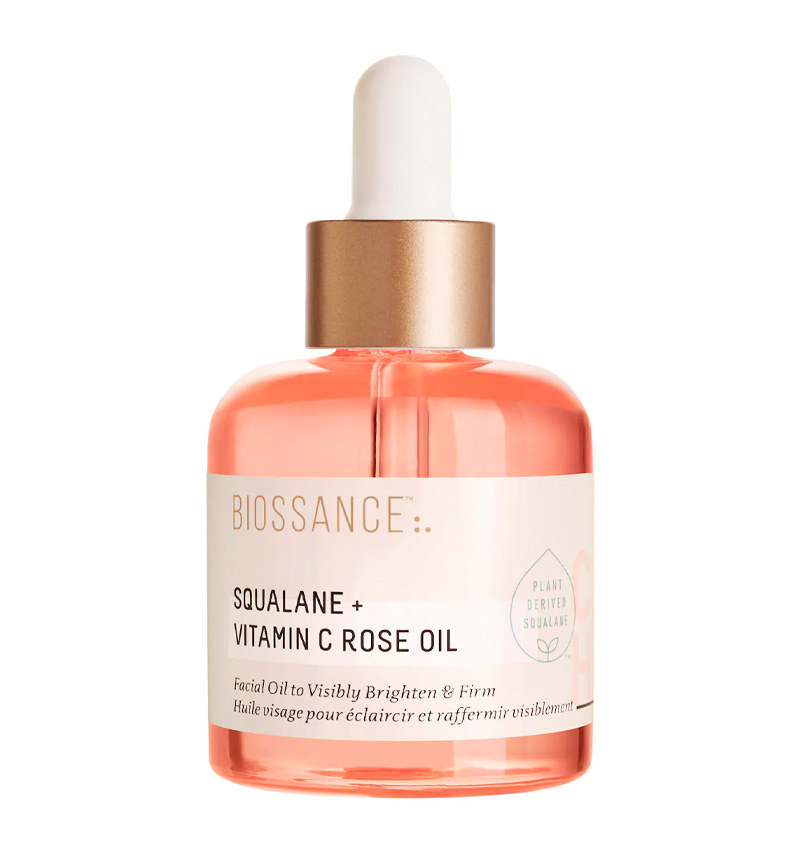
Another Chiu recommendation for dry, sensitive skin types, this Biossance oil made the list thanks to the inclusion of THD ascorbate, which is an oil-soluble and stable form of vitamin C. It has an instant dewy effect that’s great if you want a product to use under makeup or mix with a foundation and still reap the benefits. The squalane locks in moisture while the vitamin C works to visibly brighten skin in the long term.
Promising review: “Dry skin here. In my 30’s, needed a little extra help with hydration and brightening. I absolutely love this stuff. I’m sensitive and acne prone if I use certain products. This one doesn’t break me out. My skin is dewy when I wake up, and feels hydrated all day. Gives me a glow.” —LH2017 via Sephora
You can buy Biossance Squalane + Vitamin C Rose Firming Oil from Sephora for around $74.
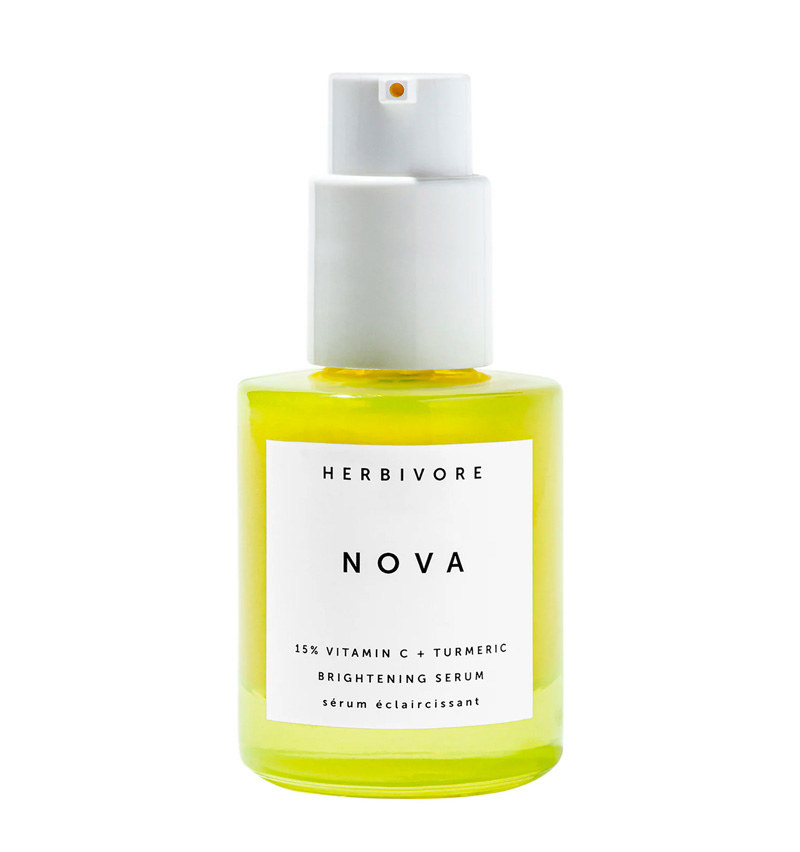
This serum from Herbivore also contains vitamin C in the form of 15% THD ascorbate. Chiu says that it’s particularly helpful in evening skin tone and pigment, possibly due to the potency or inclusion of turmeric, which contains additional antioxidants. It’s a powerful serum that combats dullness while remaining suitable for all skin types.
Promising review: “I’m already noticing my complexion is brighter after just three weeks of use. I’m a huge fan of this product and will stick with it!” —JazzyJenkins via Sephora
You can buy Herbivore Nova 15% Vitamin C + Turmeric Brightening Serum from Sephora for around $64.
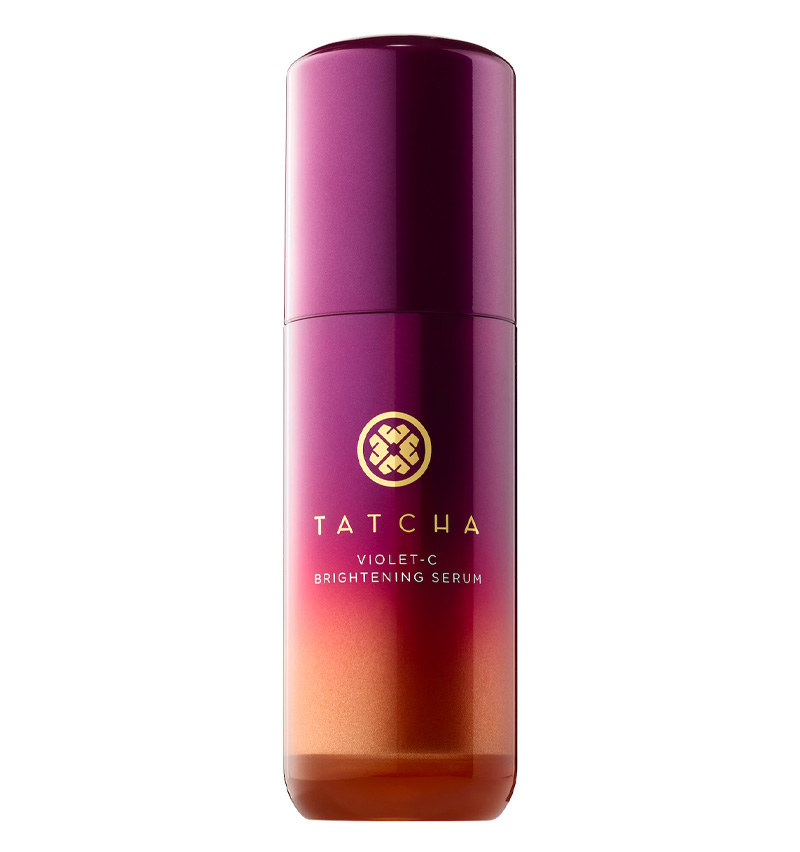
Tatcha is a luxury skincare brand that appears a lot on my TikTok For You page, but Chiu confirms that this serum is actually worth the buy. It features a vitamin C blend with 20% potency and 10% AHAs (alpha-hydroxy acids). She said that the AHAs, a chemical exfoliant, stabilize the vitamin C and make it more beneficial for oily skin types.
Promising review: “I love this so, so much, It brightens my skin and leaves it so plump. So good that since using it, I barely need to use concealer. I will always keep using this.” —Eva147 via Sephora
You can buy Tatcha Violet-C Brightening Serum from Sephora for around $89.
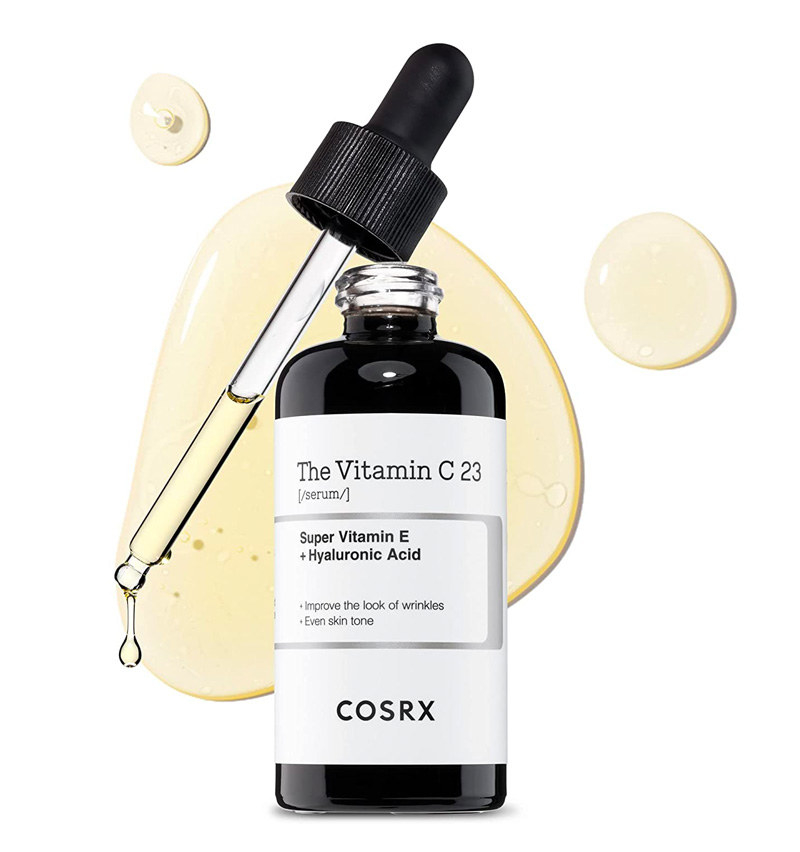
Last but not least, I couldn’t forget the beef stew–scented vitamin C serum that Stassi Schroeder swears by to prevent and soothe psoriasis outbreaks. Despite what she considers the foul smell, Schroeder highly recommends it to boost brightness and keep redness-prone skin calm and hydrated. It’s one of the more affordable options, and it’s also the most potent on this list with 23% ascorbic acid, plus vitamin E and hyaluronic acid. And if it’s any comfort, reviewers say the smell dissipates once the serum dries.
Promising review: “Really good! I have tried tons of vitamin c serums and no, this one does not smell good, but it is effective and wonderful! It is moisturizing as well. No pore-clogging ingredients, I ran the ingredients through a comedogenic ingredient database and it gave it the green light. It is plumping up some wrinkles in my skin and clearing up hormonal acne. Gentle enough to use after harsh retinol at night. Recommend for sure, the smell dissipates quickly and the results are worth it.” —Angelina
You can buy CosRx Vitamin C Serum from Amazon for around $25.
